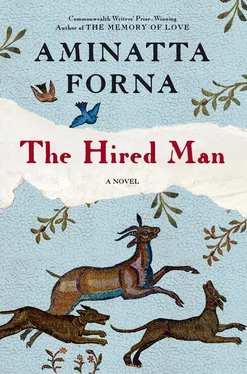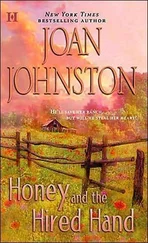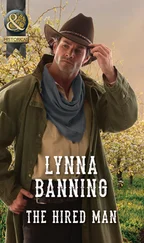‘Oh Duro, where did you get these?’
‘A wild tree.’
She stops and eyes me sideways with suspicion. ‘No, Duro. I don’t want them.’ She picks up the bag and pushes it into my chest.
‘Take them, it’s fine.’ I push the bag back at her.
‘I know where they come from.’ Takes a step back and wags a finger at me.
‘Well then don’t tell my mother.’
Anka laughs. She steps forward and snatches the bag, stuffs more cherries into her mouth. Afterwards she wipes her mouth and grows serious. ‘You can’t do this, Duro. You think I don’t remember where the tree is? This is the last time.’ Suddenly she hugs me. She smells of ceramic dust, vinegar and sweat.
‘Where’s Javor?’ I say when she lets me go. Along with the other men of Gost we have joined the territorial defence forces. So far all we’ve done is show up in the school gym for nightly meetings. A representative from the Crisis HQ in the Town Hall informed us the new National Guard was handling the situation. They have taken up a position south of the town opposite the army in the north. In between lies Gost. The army want to reach the coast but we stand in their way. Each side has roadblocks you have to pass through, on the road north and on the roads south out of Gost. Same questions, but different answers for each.
‘He’ll catch you up.’
‘Don’t bother. We only want people who can shoot straight.’
This makes her smile. ‘He’s not so bad.’
‘You were better.’ I point to the bowl. ‘This is good.’
‘I’m going to decorate it.’
‘I like it this way.’
‘What does it matter? Nobody’s going to buy it.’
‘One day.’
‘One day, sure.’
Duration, after all, is the whole point of a siege.
The storm over the town rumbles day after day. Some people have already left Gost. They left before dawn and after dusk, without telling their neighbours and they left their pets behind. How did they know? The rest of us didn’t see it coming. Now it’s impossible to leave. Too many refugees. There are the roadblocks and checkpoints. Both sides are happy to shoot you. A dog or a cat in the car is a sure sign you’re getting out and that means trouble. The abandoned dogs sit outside their old homes waiting to be let in.
I borrow books from the library on the days it is open. I read about sieges. Constantinople. Delhi. Mafeking. Paris. Dien Bien Phu. Leningrad.
The siege of French forces by the Viet Minh in their garrison Dien Bien Phu took place in 1954 and lasted for exactly fifty-four days. In the middle of that fifty-fourth night the brigadier general in Dien Bien Phu radioed his commander and asked permission to surrender. You’ve done magnificently. Don’t spoil it now by hoisting the white flag, said his commander, three hundred kilometres away. OK, replied the besieged man from his valley hole surrounded and overlooked by tens of thousands of enemy soldiers. I was only thinking to save the wounded. There were five thousand at that time, you understand. Well, see you soon, replied his commander.
French soldiers named their strong-points after women: Beatrice, Gabrielle, Isabelle, Elaine. The men decided to hold off the enemy as long as possible and allow the men in Isabelle to make a run for it — they had the best chance, you see, but only seventy made it anyway, so it was for nothing. Ten thousand were taken captive, force-marched to prison camps across the country. Most of them died on the way.
Nobody had expected the Viet Minh to use nineteenth-century tactics.
In Dien Bien Phu planes dropped rations and the men crept out under the barbed wire into no man’s land to fetch them and were shot to bits. The citizens of Paris ate the animals in the zoo: Castor and Pollux, the elephant pair, were shot through the eyes as nobody could lay hands at the time upon an elephant gun. Only the zoo’s big cats were spared because of the difficulty of approaching them, also the monkeys: people thought they looked too much like humans. Parisians developed a taste for horse meat, which continues, as well as dog, cat and rat meat, which does not. Photographs of Paris during the great siege: people sitting in restaurants with napkins tucked round their necks, munching on rat blanquette accompanied by the last bottles of decent wine.
A heavy mist slides between the trees and across the sloping ground. The tree trunks are slick and black, thick odour of rotting leaves, and — mingled with the cold morning air and the sharp scent of pine — the snap of cordite. A deadly hush. I am alone. I tread with care, weight on the outside of my foot. The dampness helps, softens the ground; the heavy air smothers small sounds. The deer are nowhere to be seen, but I sense them behind the mist, smell their moist breath, see the flash of a liquid gaze and feel a trembling footfall, twitching hide and hair, the quiver of a haunch. They are watching the shape-shifting patterns of mist. At the first tree I pause, wait and listen. I peer through the trees into the almost darkness. Forward, forward, step by step.
Minutes pass and still no sight of the deer. They must be retreating ahead of me, herding uphill. I stop and look the way I have come. The mist is beginning to clear in patches, here and there shafts of sunlight reach the forest bed freeing curls of vapour. Underfoot the ground is soft, springy and damp. The upper tree line is several hundred metres away. I’m closer to the soldiers’ camp than I have ever been though still a good kilometre away and the wind is in my favour.
Out of nowhere a deer barrels across my path: a young male on the edge of panic, the smell of musk and fright all about him. He’s there and gone. It gives me a jolt, a squeeze to the heart. I wait a minute or two before I begin to move steadily in the direction he went. A mature doe comes racing towards me, passing within metres, fleeing some threat, or she’d never come so close. Only a few times in all my years have I been so close to a live animal. Seconds later a group comes racing through the trees, a second group bolt past going the other way. I am caught in the middle of a stampede. There’s something comic about it: the deer, their sudden leaps and graceless crashings, and when they stop they stand around as if they’re embarrassed at their own behaviour, before the madness goes to their heads again and they’re off, ricocheting through the trees.
Something has spooked them — not me, though by now they’ve surely scented me, which is no doubt adding to the general confusion. I wait in the shadow of a tree. There’s no longer any point being here. Nothing can happen now, the deers’ blood is up — I won’t get close to the herd today.
Movement. There’s another animal in these woods. Smaller, nearly as fast as a deer, a softer footfall. It scatters a group of deer and lurches round in a circle before heading back towards them. A dog: a youngster of two or so with huge paws, ears streaming behind him, tongue lolling, the thrill of the chase gone to his head; he races straight past me, the deer have his eye and he’s heady with the scent of them. I don’t recognise him as belonging to anyone in Gost and he doesn’t look like a stray. A hunting breed, well fed, well cared for, totally undisciplined.
The sound of voices. Singing and shouting. Soldiers singing drunken songs. A late-night session has turned into an early morning hunt, but none of them is sober enough for it. The dog is out of control. This is bad for me. The big problem is the dog. At the moment he’s too bound up chasing deer, but the minute I start to run or even move that will all change. If I stay where I am, which I don’t have any choice but to do, he could still come back. I’m pretty sure he’s seen me, he’s just not that interested while there are deer to chase. I stand still and count my breaths.
Читать дальше












